Imagine moving to Malaysia as an international student, how would you experience the country? We invited some of our international students at Swinburne Sarawak to share their stories and personal experiences of their time in Kuching.
CHELWARD THEODORE HERNANDES BROWN
From May Pen, Jamaica. Bachelor of Engineering (Mechanical) (Honours).
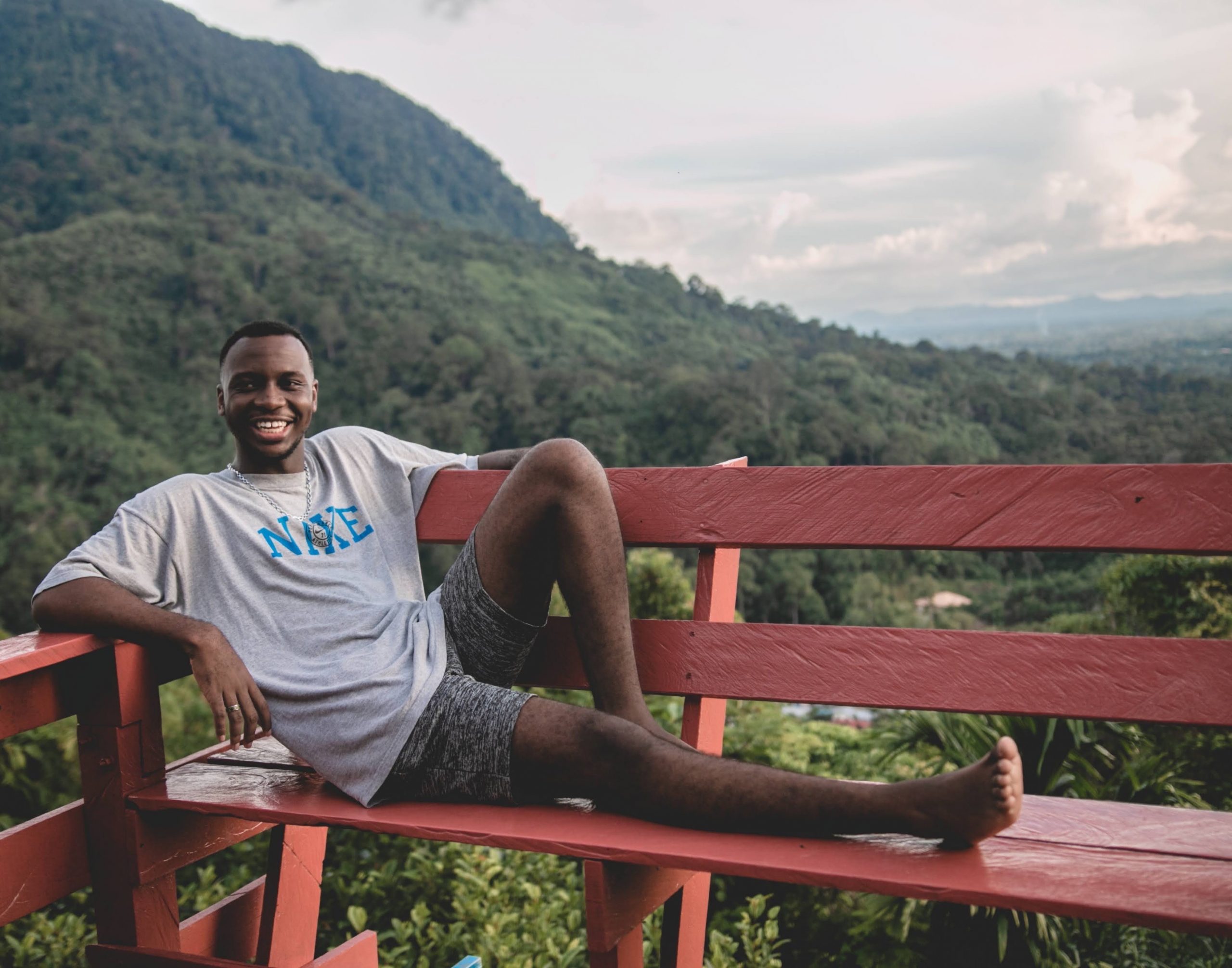
- What’s your favourite Kuching/Malaysian food?
My favourite Malaysian food is Laksa Sarawak. Followed by Kolo Mee Merah and Nasi Lemak Ayam.
- First Malay word/phrase you learnt?
The first Malay word I learnt was ‘Keluar’ (Exit) because of the signs in the airport. After that, I learnt numbers and how to ask the price of items with “Berapa?” (“How much?”). And “Sudah makan?” (“Have you eaten?”).
- How similar or different is Kuching from your hometown?
I am from a town called May Pen, in Jamaica. It is much smaller than Kuching, about 70,000-80,000 people. The weather is basically the same. Hot mornings, and sudden rainy afternoons. The big difference is that Kuching has more activities to do.
- If you could bring one item from your country to introduce to friends in Kuching, what would it be?
I would bring ackee and saltfish, which is Jamaica’s national dish. Also, Juici Patties which is a popular fast food chain back home.
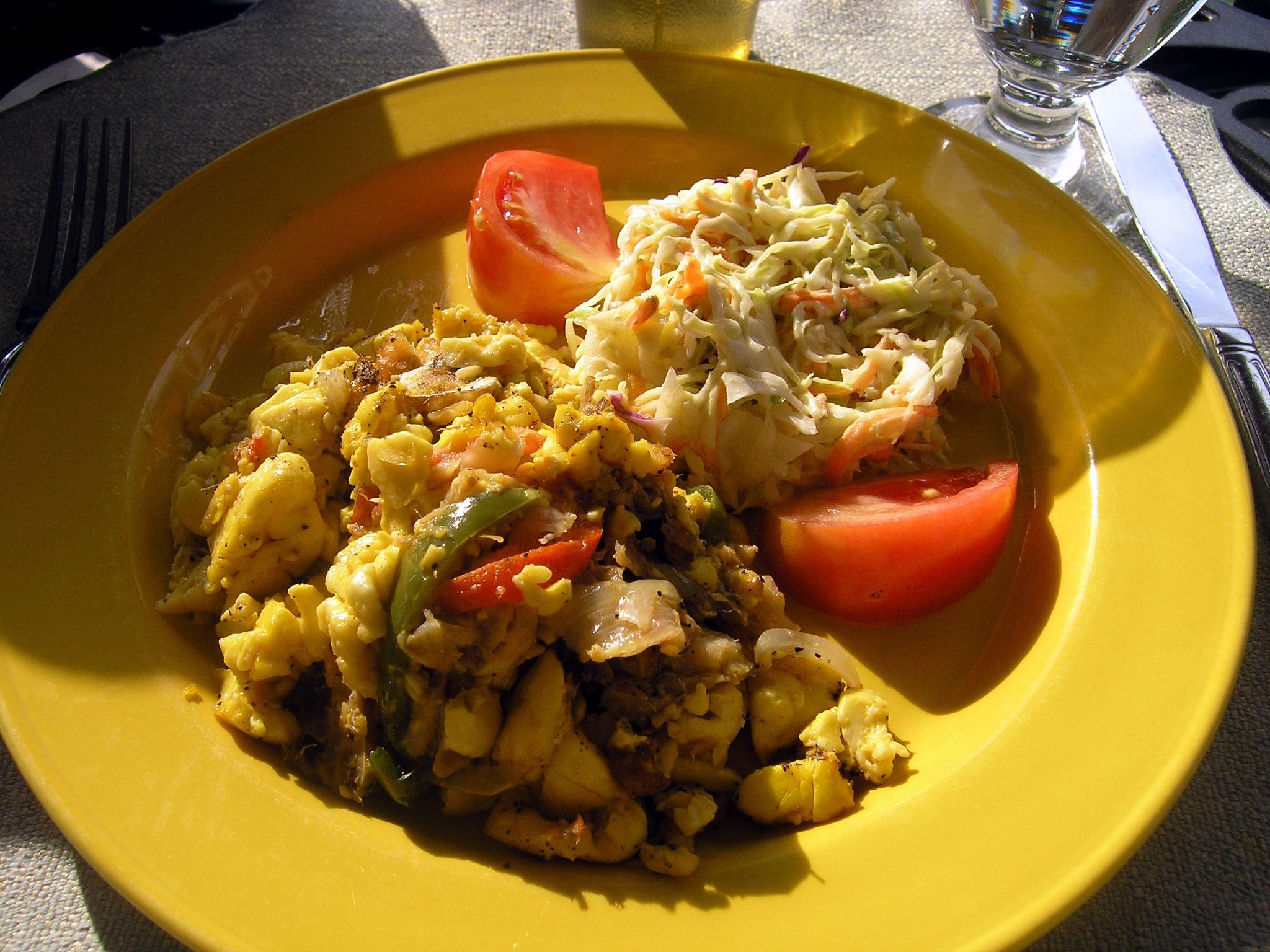
Jamaica’s national dish: ackee and saltfish.
- What’s your recommended ‘must-do’ while in Kuching?
Wow, so many things come to mind. The easiest place to start your Kuching adventure is at the Borneo Cultures Museum, the largest museum in Malaysia and second largest in Southeast Asia. It’s also one of the most unique buildings you will find anywhere in the world! Bako National Park for a fun, challenging nature hike (plus if you are lucky you will see some native Bornean wildlife). If you are fit, you can take on Mt. Singai. Mendung Escape, located in the hills of Bau, is a beautiful location for a getaway with friends while Pinngir Siak is for more of a cabin in the woods vibe (there is also a river here!). And if you want a cold dip, visit Satow Waterfall, Kampung Bobak.
When you are hungry, try the Laksa from King Laksa Sarawak and Mom’s Laksa. There are Bombay Selera and Bombay Spices if you are in the mood for Indian food, while Al-Yemen Restaurant has the best Arab food in Kuching. For the best Kolo Mee I have had in Kuching, it would be at Top One Food Court, a 5-minute walk from uni.
Bear Garden is probably the most popular watering hole for students to congregate, and The Junk/Backstage is for those who like to dance the night away. If you are in the mood for a fancier evening, visit Zinc Restaurant.
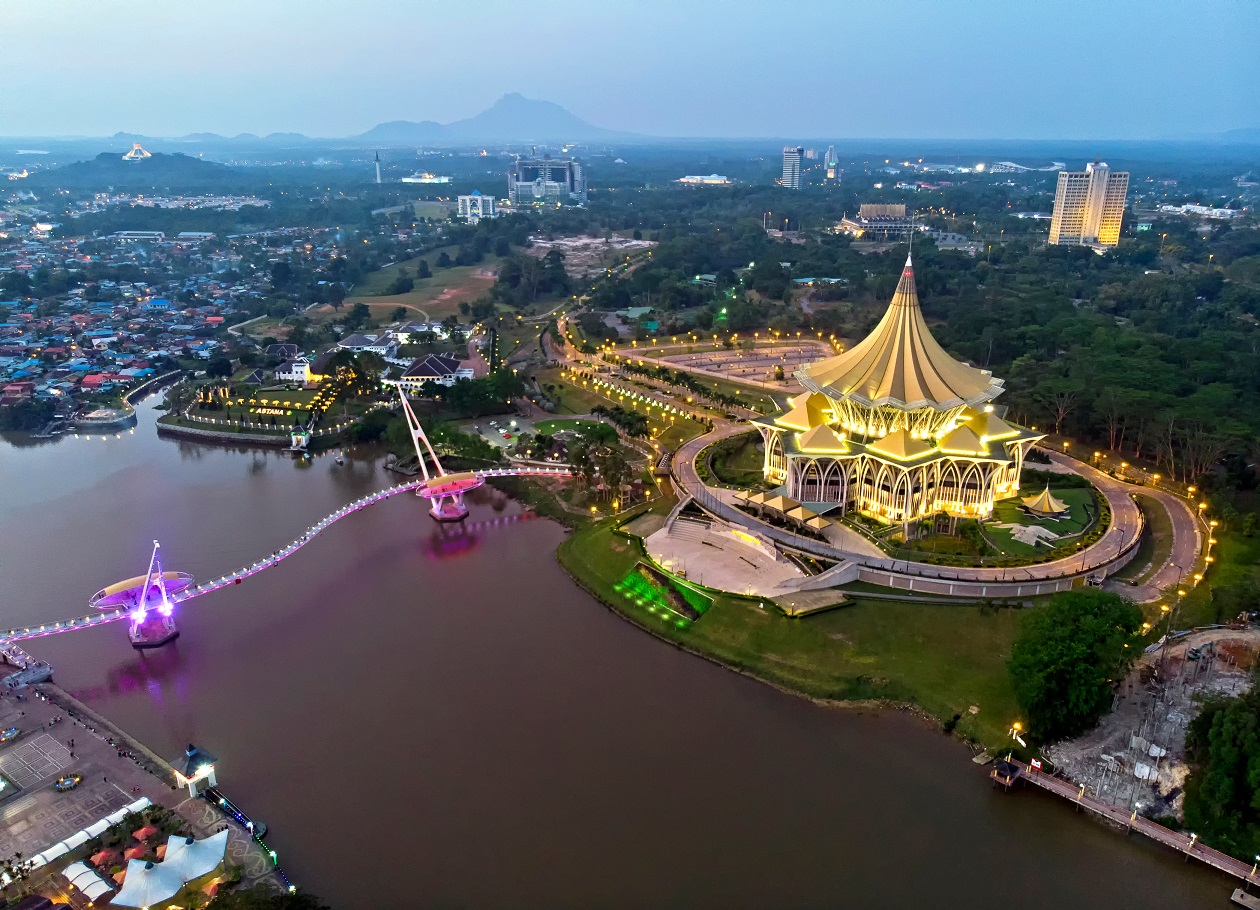
Kuching is a vibrant city renowned for its culture, crafts, and cuisine.
- Your tip for students looking to study abroad in Kuching?
Make as many local friends as possible. Don’t just hang out with other international students. I know it might be hard for some people, but learn a local word and teach your new friends a word from your country! Learn as many Malay words as possible. Malay is easy if you learn from your friends (learning from books or the news is hard). Start with numbers, then names of foods. The more you learn and understand the culture, the more fun you will have here!
RACHEL DEVANMINI WEERASINGHE
From Colombo, Sri Lanka. Bachelor of Business (Human Resource Management).
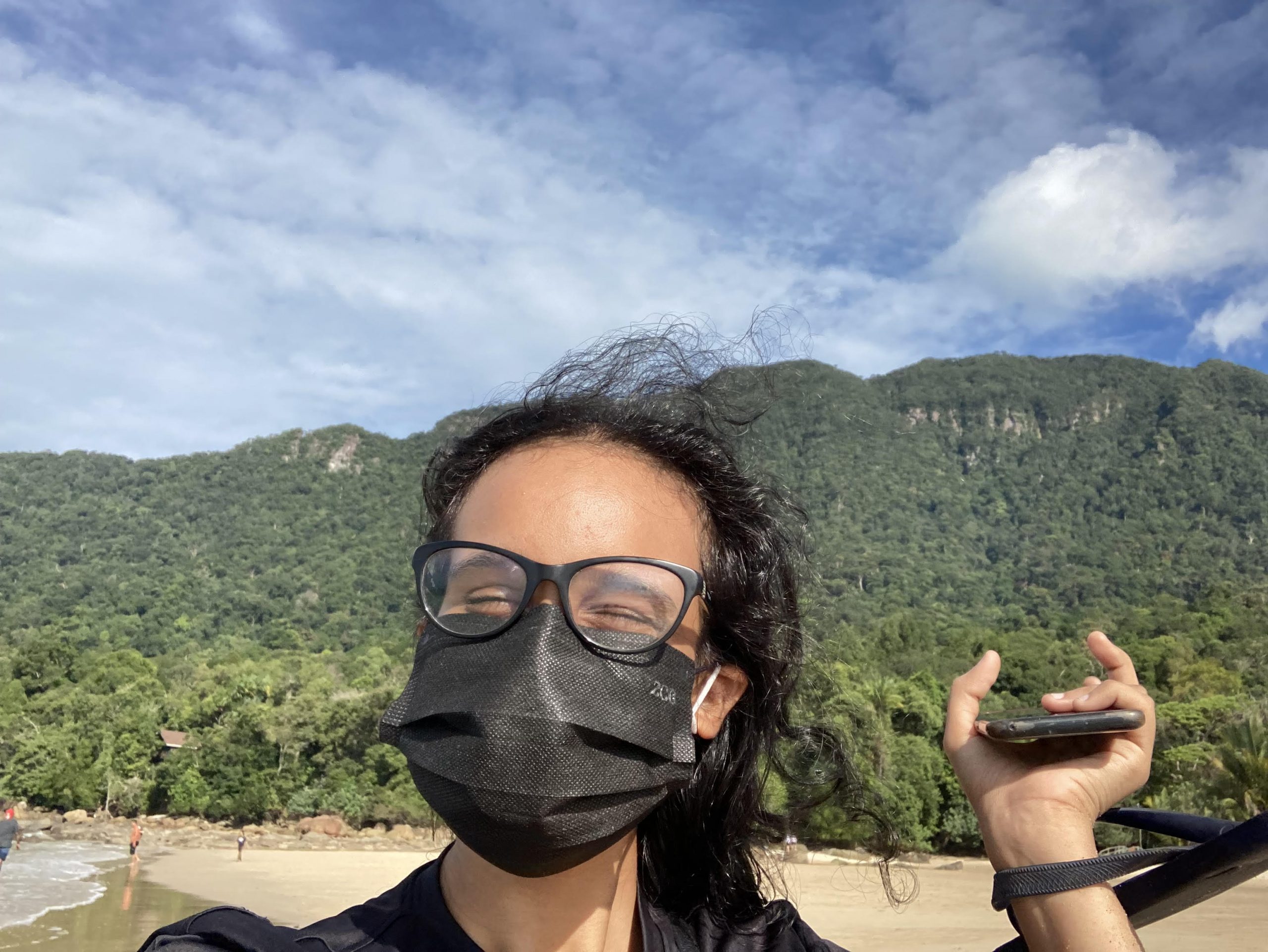
- What’s your favourite Kuching/Malaysian food?
This question is definitely a hard one. It’s like asking a mom to pick her favourite child! But if I had to choose, one of my go-to favourite dishes would be Nasi Lemak (I don’t eat it all the time, but when I do, it surely brightens up my mood).
- First Malay word/phrase you learnt?
Kudos to Swinburne’s first-year General Studies/Mata Pelajaran Umum, the first Malay phrase I learnt was “Nama saya Rachel” (“My name is Rachel”). But for a Malay word I use a lot, it would be the endearing Malaysian suffix slang of “lah/loh”.
- How similar or different is Kuching from your hometown?
Moving to Kuching, it took a bit of time to adjust to the new environment. Thankfully, the food was not an issue for me as there are similarities in the ingredients used for certain dishes, such as coconut milk and spices (found mostly in Malay food). But one of the key differences is the strong aromatics found in many dishes here which made me fall in love with Malaysian food.
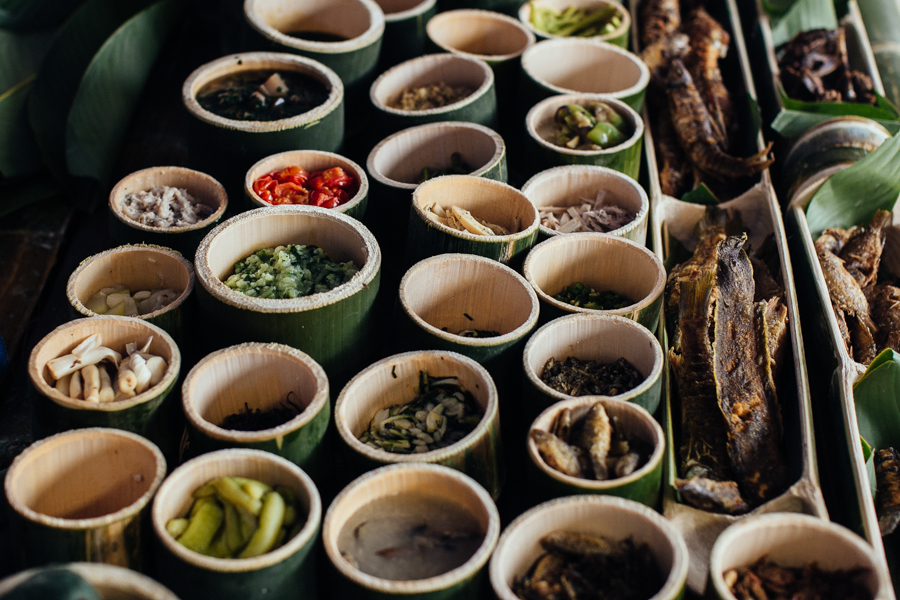
UNESCO named Kuching as the first ‘Creative City of Gastronomy’ in Malaysia.
- If you could bring one item from your country to introduce to friends in Kuching, what would it be?
It would be the food! (surprising, I know). Specifically, I would love to bring over my mom’s dishes, such as our national dish, rice and curry, to wow my local friends since I cannot replicate her cooking. I would like to introduce our cuisine to my friends since Sri Lankan flavours and foods are so vibrant, flavour-packed, and lovely.
- What’s your recommended ‘must-do’ while in Kuching?
The beauty of living in Kuching is how you can drive for a short while outside the city and immediately be greeted with wonderful and lush landscapes. So, my ‘must-do’ in Kuching is to go for road trips. Whether to the beach, hiking, or other outdoor activities, Kuching’s natural landscapes will satisfy your heart’s content! Extra recommendation: Check out Permai Beach Resort for its lovely beaches and forests, which are definitely worth the drive.
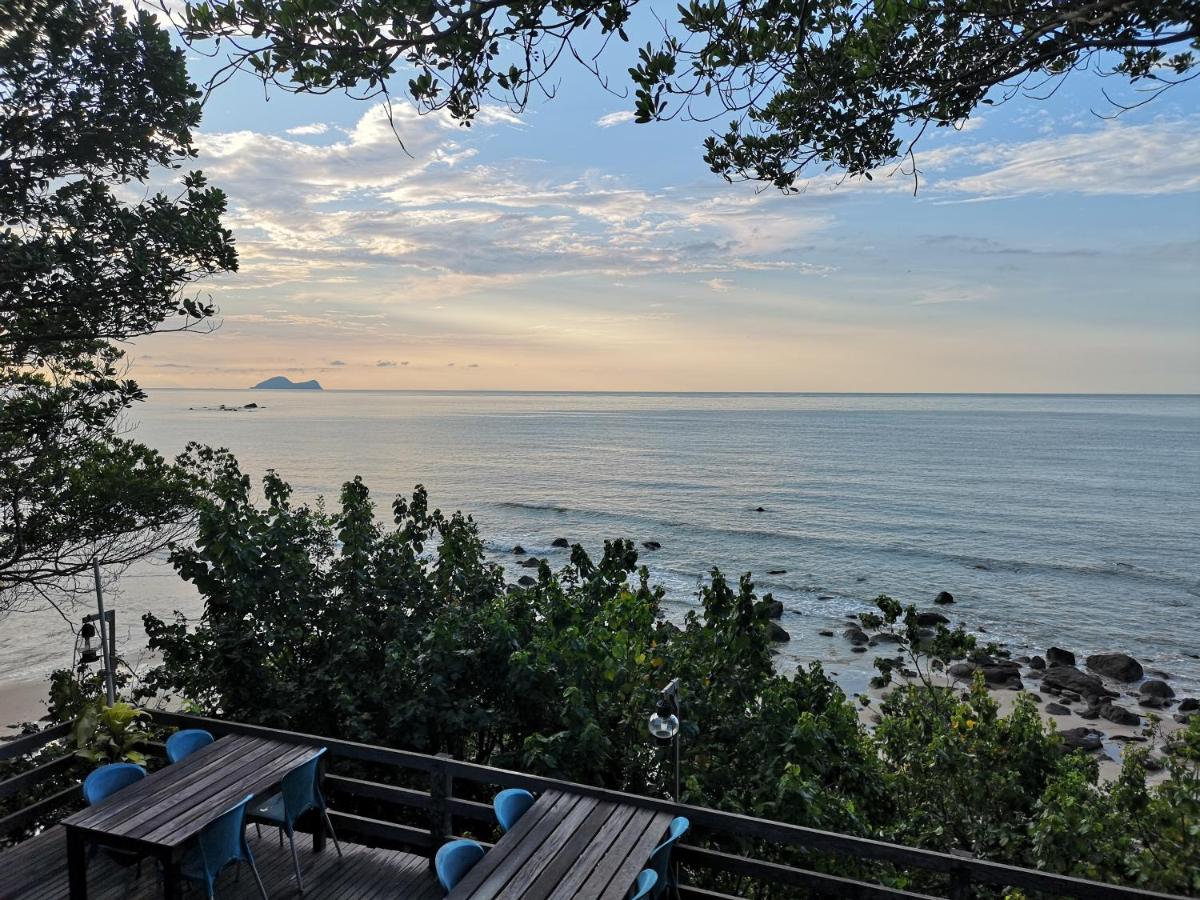 Sunset views at Permai Beach Resort.
Sunset views at Permai Beach Resort.
- Your tip for students looking to study abroad in Kuching?
My tip would be in regards to your prep before coming to Kuching. I recommend bringing only things you feel you can only find in your hometown. This is because items such as bedroom necessities and electrical appliances can be bought easily in Kuching at affordable prices. This helps reserve your luggage space for things you find essential and unique to your hometown.
ALEC VINCE GONZALES ABUAN
From Philippines, raised in Bahrain. Bachelor of Computer Science.
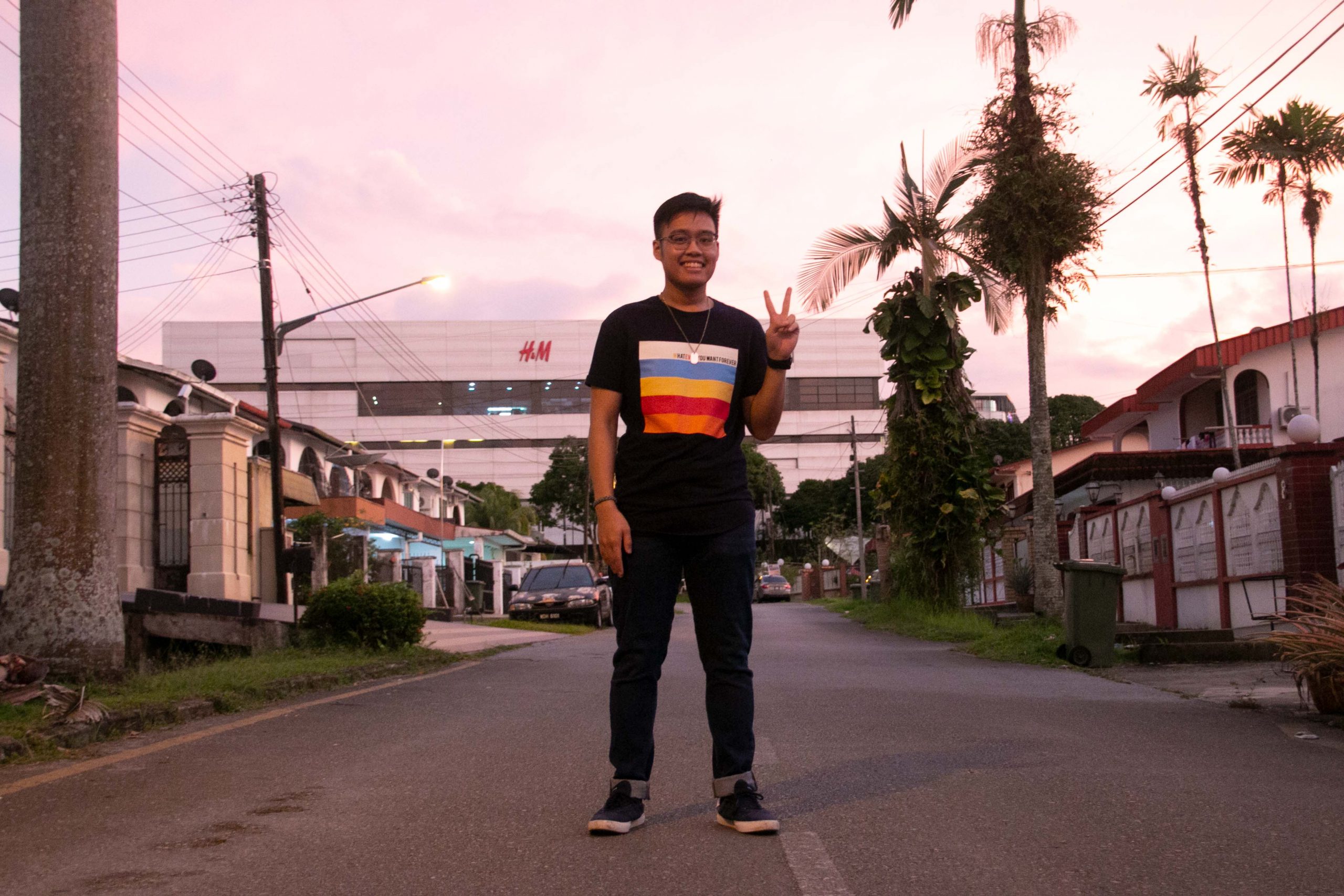
- What’s your favourite Kuching/Malaysian food?
What an incredibly difficult question to be honest! For Malaysia, it would be broasted chicken rice. A little backstory about this: Studying in Swinburne was not the first time I’ve been to Malaysia. I previously visited a few places like Kuala Lumpur, Perak, Melaka, and Johor with my family while looking for potential universities. It was there where I tried chicken rice for the first time. Although it was only in a mall, it was enough to convince me how good chicken rice is!
For Kuching, it is an easy answer. It’s definitely Laksa Sarawak because it is the best Laksa there is. (come fight me!) The feeling of a warm, delicious Laksa in the morning was something I quickly got used to coming to Kuching. The tangy spiciness with the sambal, chicken, shrimp, and egg; it’s just too good!
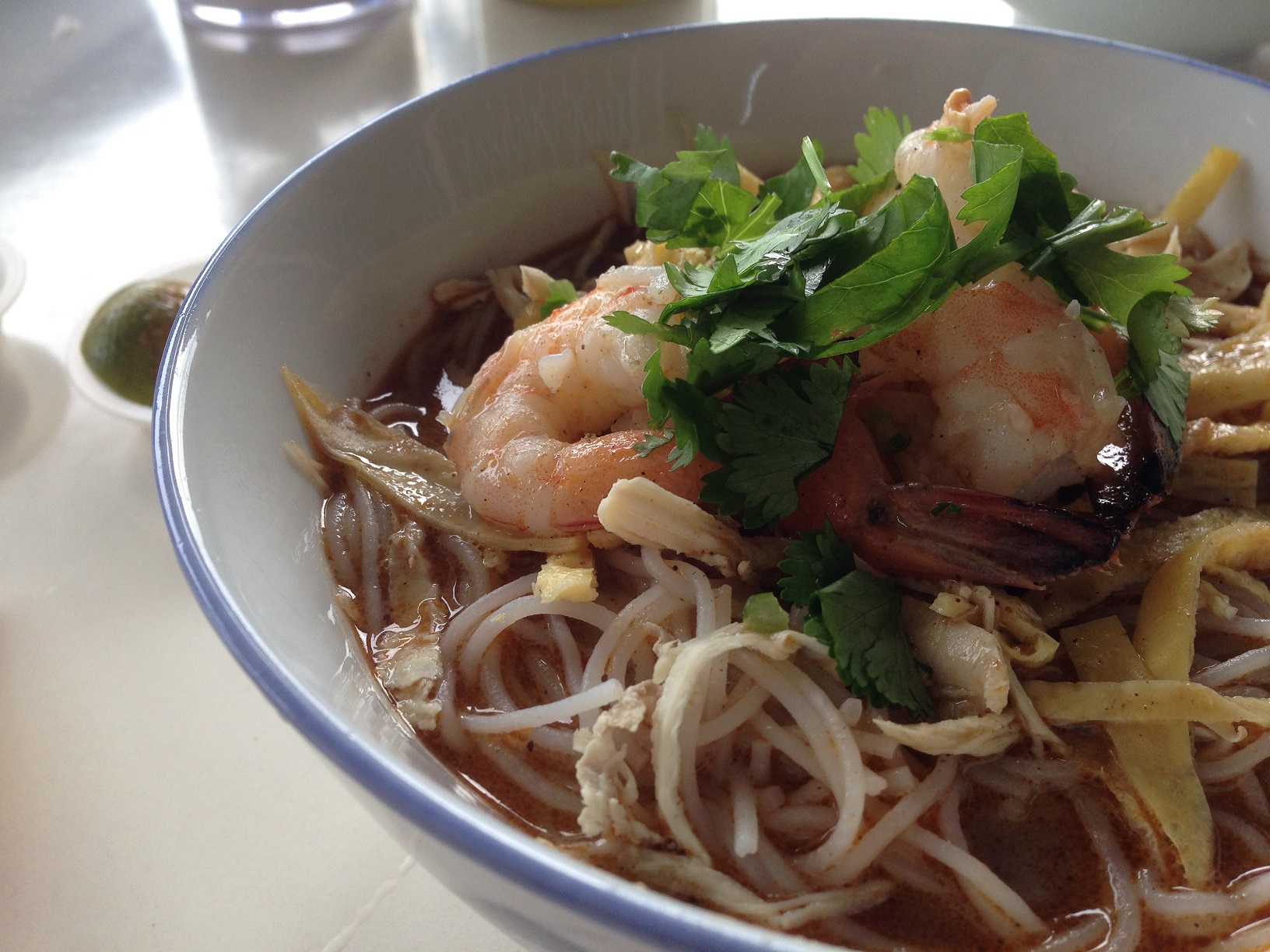
The pride of the State: the humble but heart-warming Laksa Sarawak.
- First Malay word/phrase you learnt?
The first word that stuck with me was ‘Ayam’ (Chicken), or to be specific “Satu Nasi Goreng Ayam” (“One chicken fried rice”). This word and phrase stuck with me for 2 reasons: 1) I practically live in Nasi Kandar Line Q Restaurant next to campus and learnt it for my frequent order. 2) During my dad’s travels to East Timor for work, he picked up the word ‘Ayam’ which he told me meant ‘Chicken’, even before I stepped into Malaysia!
- How similar or different is Kuching from your hometown?
I would say Kuching is a mixture of both Philippines and Bahrain. I was born in Philippines but moved to Bahrain when my dad was working there and ended growing up in Bahrain for 10 years before coming to Kuching.
Bahrain is home to me, but Philippines is where my amazing grandparents and relatives live. Kuching is a bit laidback like Bahrain and has that small city vibe. Like Bahrain, I moved here not knowing much but after a few years I found amazing people and made great memories and now Kuching feels like a second home to me already!
The food and culture in Kuching are a reminder of my time in Philippines, although the weather also is because it rains a lot!
- If you could bring one item from your country to introduce to friends in Kuching, what would it be?
From Bahrain, can I bring a whole Arab restaurant? I really miss authentic Arab food especially Shawarma and Biryani in Bahrain. I would like my friends to try them!
From Philippines, I would bring ‘Balut’ to scare my friends! This fertilised bird egg embryo delicacy is so scary to most foreigners and the reactions from them always make me chuckle. However, in the Philippines you can buy this on any street corner easily and is popularly eaten.
- What’s your recommended ‘must-do’ while in Kuching?
Definitely hiking and then eating well! Kuching and Sarawak have plenty of natural attractions. Personally, I have climbed one mountain here (the smallest one but we will pretend it is the largest) and it was such a good experience! Although it was kind of scary as it was wet and slippery from the rain at the time, the view from the top was gorgeous! The sight was breath-taking and it felt like I could touch the clouds!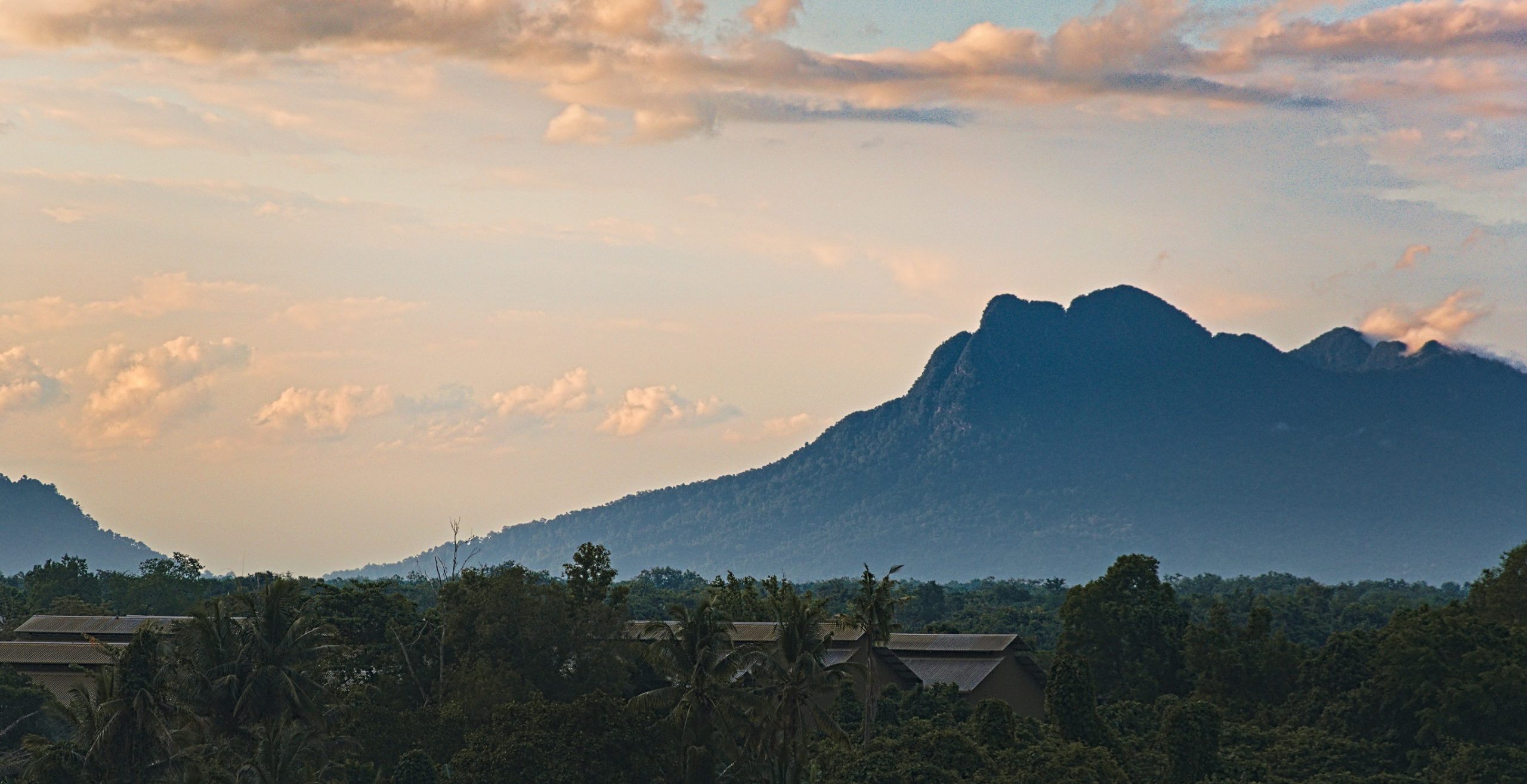 Hiking is a favourite past-time among many with Kuching’s natural attractions a stone’s throw away
Hiking is a favourite past-time among many with Kuching’s natural attractions a stone’s throw away
- Your tip for students looking to study abroad in Kuching?
For international students like me, the tip is to be appreciative of what you have where you are. Naturally, I have had my struggles here missing home and the food. But open your eyes a little and be more willing to be open-minded to try new things. You will quickly learn to love it! Kuching is unique in so many ways and that is what makes it good.
TATYANA BASTRYGINA
From Semey, Kazakhstan. Doctor of Philosophy (Marketing).
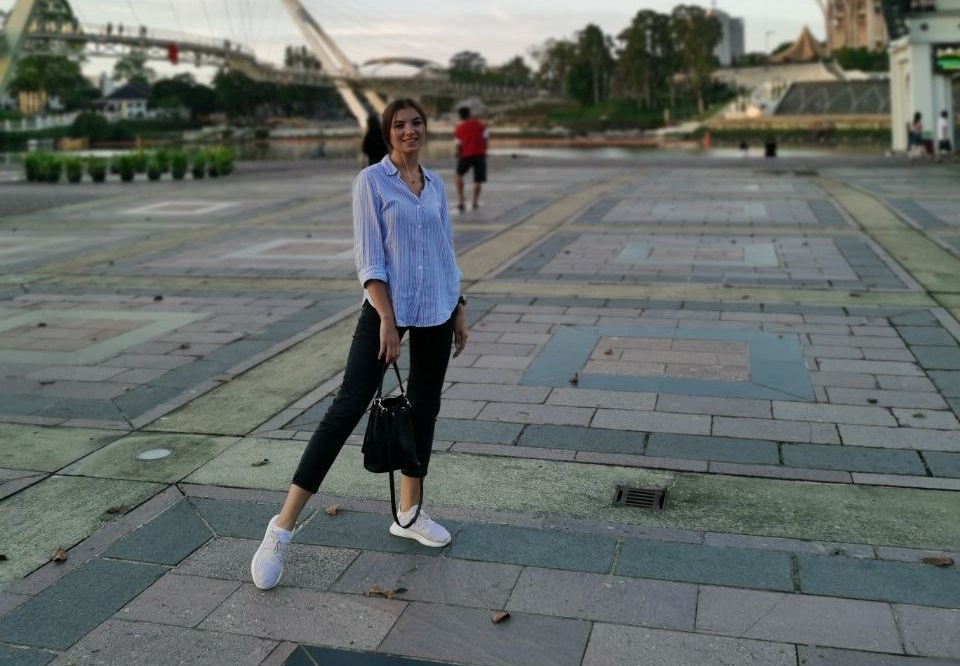
- What’s your favourite Kuching/Malaysian food?
My favourite food is the widely-appreciated and favoured dish by the Kuching locals, Laksa Sarawak. For something sweet, I enjoy Kek Batik, a type of Malaysian no-bake fridge cake dessert brought in by the British during the colonial era, and adapted with Malaysian ingredients.
- First Malay word/phrase you learnt?
“Terima kasih” was the first phrase I learnt in Malay. It means “Thank you”, undoubtedly an important one to pick up!
- How similar or different is Kuching from your hometown?
Kuching is entirely different from my hometown of Semey in Kazakhstan. I find Kuching people to be very friendly and I like the weather here. Kuching is also very diverse in its large number of ethnicities of people and also in terms of culture, which is very interesting to explore. Around the outskirts of the city, I have discovered many exciting places to visit, such as local farms, hiking spots, picturesque waterfalls, and my favourite one: its beaches.
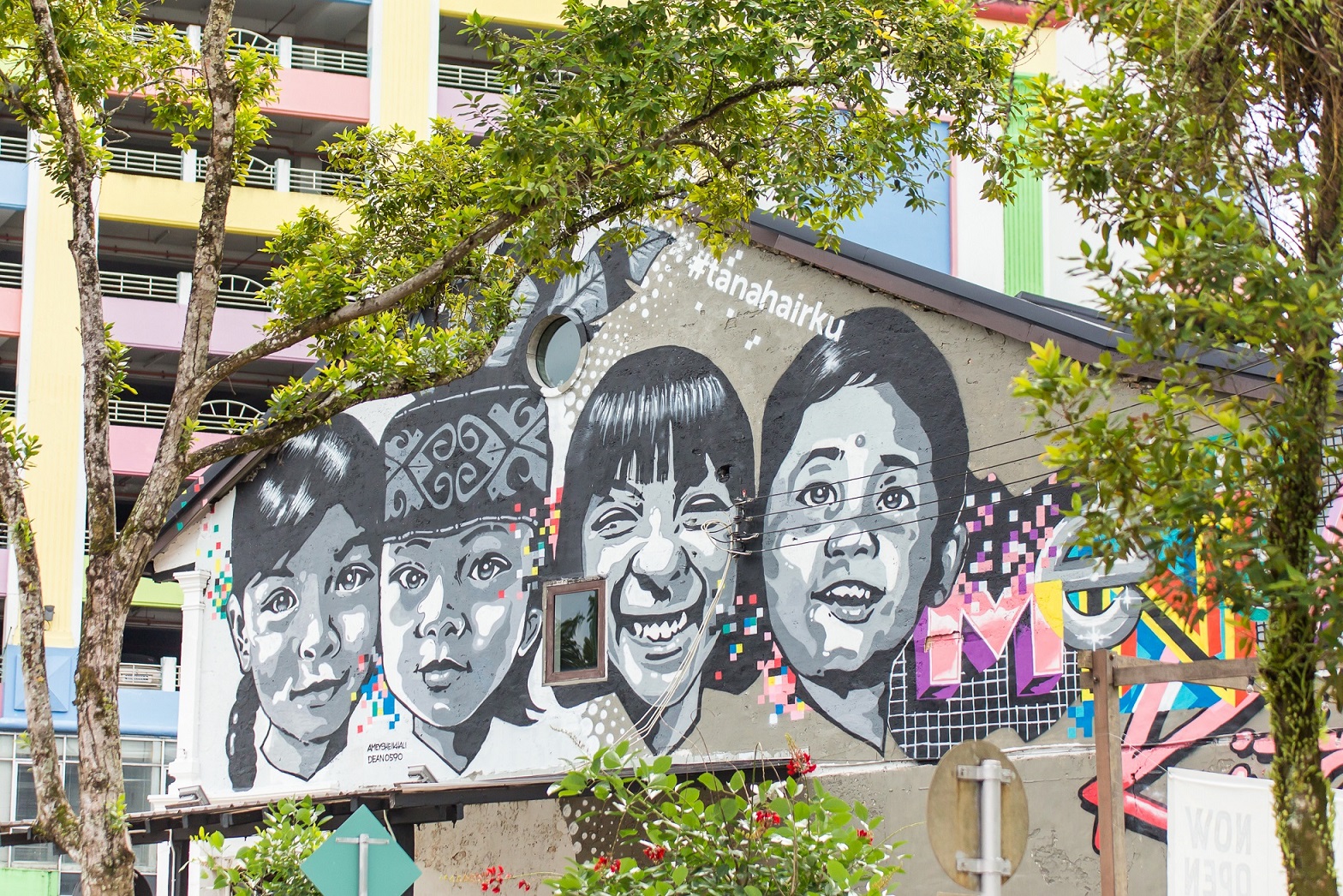
Street art is common with Kuching’s growing art scene. This #tanahairku mural highlights the ethnic diversity of Sarawak.
- If you could bring one item from your country to introduce to friends in Kuching, what would it be?
In Kazakhstan, horse meat is not only a staple of the Kazakh diet, but also considered a delicious treat with deep history. So whenever I return to Kuching, I usually bring horse meat and authentic Kazakh chocolate for my friends here.
- What’s your recommended ‘must-do’ while in Kuching?
I enjoy staying in Kuching, and I do not have a specific thing that someone must do here as there are plenty of attractions in and outside the city which keep it interesting. But I would say to try as much of the local and international food available and explore as much as you can.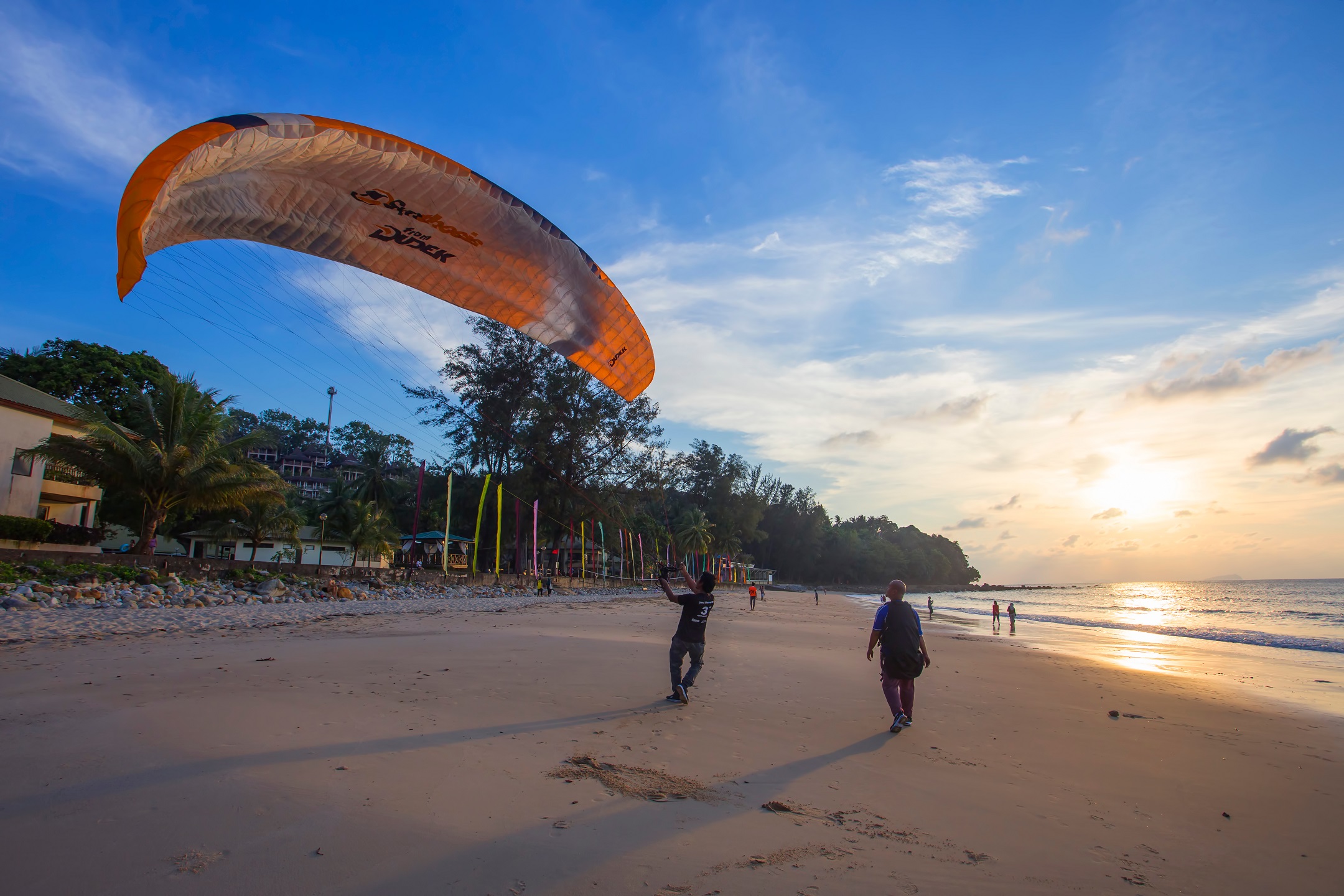
A short 30-minute drive from Kuching’s city is Damai Beach.
- Your tip for students looking to study abroad in Kuching?
My tip would be to study hard, but also do not forget to have fun!
Read Part 2 of ‘International Students Share Their Experiences in Kuching’ here.
Excited to make Kuching your next study destination? For more information about Swinburne and how you can attain an Australian education right here in Sarawak, visit Swinburne’s website www.swinburne.edu.my, Facebook page (@swinburnesarawak), Instagram (@swinburnesarawak), Twitter page (@Swinburne_Swk) or YouTube channel (Swinburne Sarawak).

